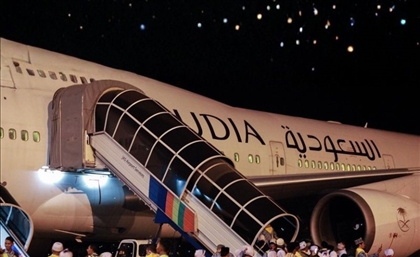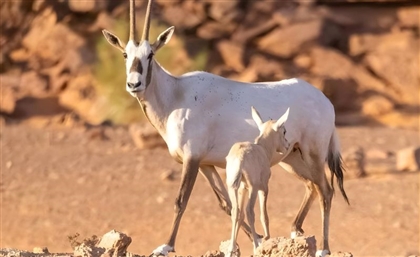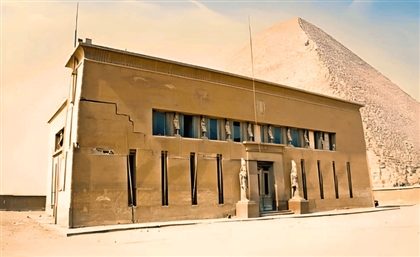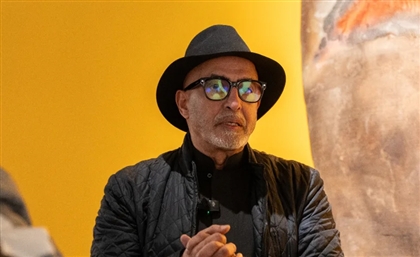The Kaaba’s Kiswa Was Once Made in Egypt
“It wasn’t just a job. It was a form of worship.”
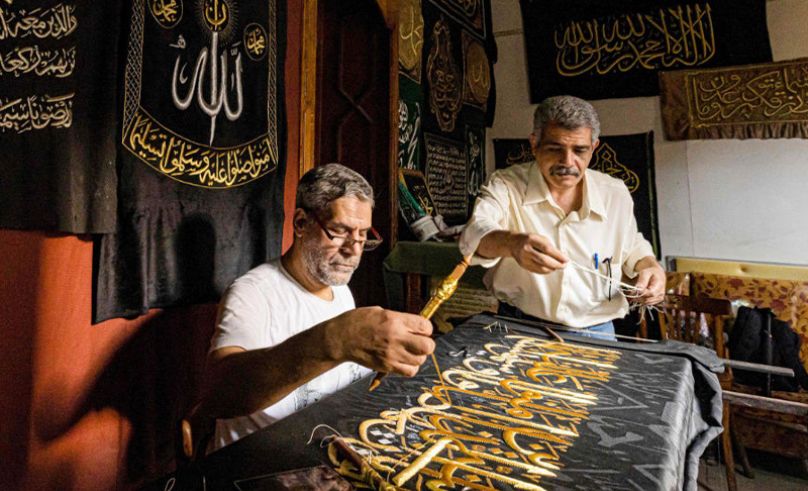
Before it became the exclusive task of Saudi Arabia’s Kiswah Factory in Mecca, the sacred cloth that drapes the Kaaba—the Kiswa—was once handwoven in Egypt. For centuries, the honour of producing this sacred textile belonged to Egyptian artisans whose needlework carried both craftsmanship and deep spiritual devotion. Nearly a century ago, a group of ten master weavers in Cairo spent an entire year crafting the Kiswa by hand, stitch by stitch, in preparation for its annual journey to Mecca ahead of Hajj.
To trace this legacy, we spoke with Ahmed Shawqi Othman Al-Qasabji, grandson of the man who once led Egypt’s Kiswa Authority. His grandfather, Othman Al-Qasabji, was at the helm of the operation in 1924, overseeing the meticulous process from the weaving of the black silk to the embroidery of Quranic verses in shimmering gold thread.
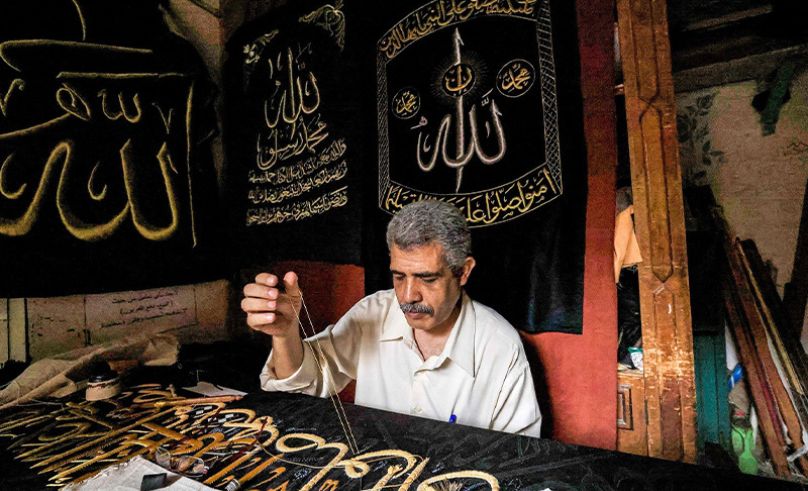 “Ten craftsmen worked for a year,” Ahmed recalls. “It wasn’t just a job. It was a form of worship.” Passed down through generations, the story of Othman’s stewardship reads like a sacred inheritance. The workshop itself stands in Cairo’s historic Darb El-Ahmar district, an unassuming space that housed a spiritual duty of monumental scale.
“Ten craftsmen worked for a year,” Ahmed recalls. “It wasn’t just a job. It was a form of worship.” Passed down through generations, the story of Othman’s stewardship reads like a sacred inheritance. The workshop itself stands in Cairo’s historic Darb El-Ahmar district, an unassuming space that housed a spiritual duty of monumental scale.
The Kiswa was not merely a ceremonial object. It was a national pride, crafted with intention, reverence, and artistry. Egypt’s last official contribution was in the 1920s, after which the production gradually moved to Mecca.
Still, the memory remains alive. “My wish,” Ahmed tells us, “and I don’t know if I have the right to ask for this, is for us to produce the Kiswa again.”
It is a modest request, spoken with longing. But it holds weight. Because in those threads once spun on Egyptian looms, faith was made visible. And perhaps, in remembering, a revival isn’t so far-fetched.
- Previous Article Aswan’s Zen Wellness Goes Global with Langkawi Launch
- Next Article How a Dubai-Based Palestinian Brand Bottles Heritage








